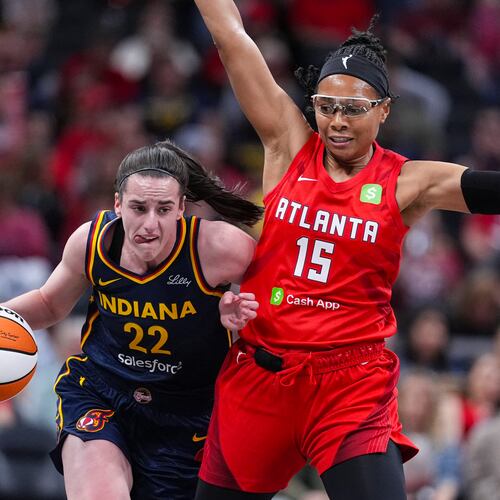The beginnings of TCU’s scoreboard-scorching offense came more than 20 years ago at a small military school in Milledgeville.
Horned Frogs offensive coordinator Doug Meacham was then at GMC when Valdosta State, featuring coach Hal Mumme and offensive coordinator Mike Leach, came to play in a scrimmage.
There were two things that stood out. The first was all the fights, the worst Meacham said he ever saw. Rosters filled with Georgia kids who didn’t like each other wouldn’t stop expressing that emotion. Meacham said it was a like a forest fire of emotion. The practice was eventually cancelled. But when the two teams did play Meacham saw something that changed his life: the “Air Raid” offense that later sent Mumme and Leach onto coaching jobs in power conferences. Receivers were everywhere. Running the ball was an afterthought, defying years of football wisdom.
Meacham had never seen anything like it. He loved it.
“The foundation of it is still there from what we did at Georgia Military, it’s still there,” he said. “And if you watch a Washington State game, you’ll see the foundation because that’s what Coach Leach is still doing today.”
In Meacham’s first year at TCU after a year he spent a year at Houston, the Horned Frogs are averaging 46.8 points per game, second-most among FBS schools. TCU has the most-improved offensive year over year in yards (197.4 to 542.2 yards per game) and scoring (21.7 points per game). They have passed for almost 4,000 yards and rushed for more than 2,500. The Horned Frogs put up 82 points … against Texas Tech.
But back to the beginning.
Meacham hired a graduate assistant away from Valdosta State to join the staff at Georgia Military College to specifically work with him on installing the offense.
Because Meacham said he typically got just three semesters with the players, he kept things very basic. He estimates they had three running plays, six drop-back passes and three quick-game schematics.
“We kind of pieced it together,” he said.
The results were good and Meacham’s method as offensive coordinator so basic it could almost be considered arrogant. For two years the team ran the same formation every play, no matter the circumstance. He estimates they went 20-2 during that span. By the time Meacham left Georgia Military in 1997 for for a similar position at Jacksonville State the Bulldogs went 35-8.
Through the years, with record-setting stints as the offensive coordinator at Jacksonville State, Henderson State and Samford, Meacham added tweaks to the offense. Some he termed as “gadgety” run plays. More tweaks came in eight years as a position coach at his alma mater, Oklahoma State, where Dana Holgorsen was an influence.
The results are what the Horned Frogs were able to accomplish this year: Heisman Trophy consideration for quarterback Trevone Boykin and just missing a spot – some would say unfairly – as one of the final four in the College Football Playoff.
Meacham and co-offensive coordinator Sonny Cumbie develop the game plan during the week, usually apart. Meacham said he works better that way. Then he, Cumbie and the rest of the staff get together to discuss tactics. Meacham calls the plays during the games with Cumbie and the rest feeding him information.
He makes it sound simple.
There’s not a lot of planning for specific plays. Meacham reasons that if you prepare all week for a certain look and the opponent doesn’t line up like you thought, that’s a week of work wasted.
Instead, he prefers to let his base offense, with a few wrinkles, attack the opponent’s base defense, with whatever wrinkles they want to try, and see the results.
“Doing it better than they can defend it; that’s the M.O.,” he said. “By doing it, and being simple, you know how to react to what they are doing to you. You know what the answers are.”
If Meacham sounds a lot like Georgia Tech’s Paul Johnson, there are similarities in confidence and belief in systems.
Meacham said if he wasn’t so deeply involved with this offense and loved the pass so much he likely would run the triple option for the same reason that Johnson does: he believes he can run his base better than the opponent can run their’s.
Meacham said he doesn’t go into a game planning to run it more or pass it more depending upon the opponent. Instead, the plan morphs based upon what is happening.
“If you can stop our best stuff you are probably going to win regardless of all this game-planning stuff,” Meacham said.
About the Author
Keep Reading
The Latest
Featured



